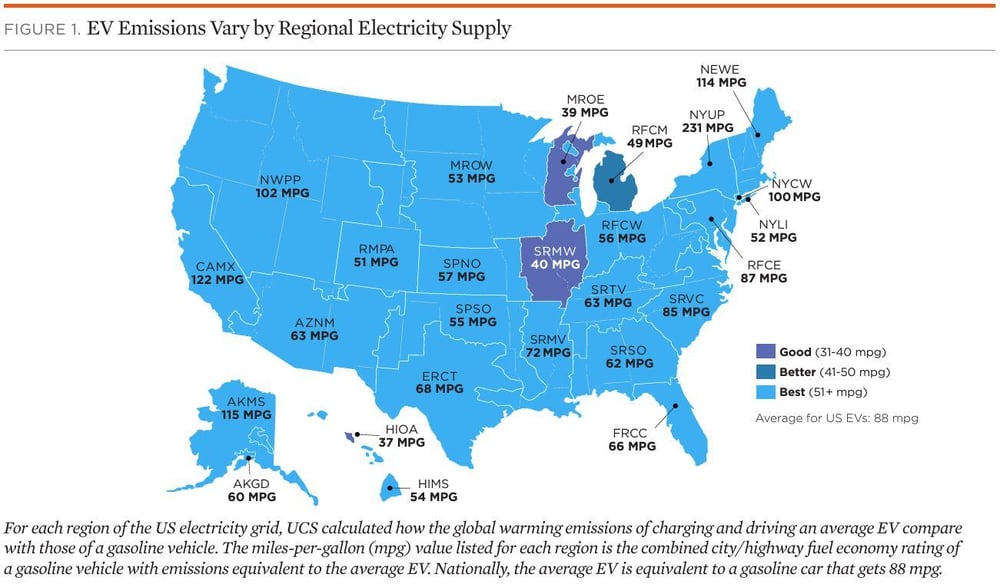A June 18 Boston Globe story, “If even the secretary of transportation won’t take the train, who will?” greatly understates the value that electric vehicles bring to us in terms of reducing pollution causing both global warming and severe health problems. Much of the article is about how we need to support public transportation and reduce the total vehicle miles traveled (VMT) by individual cars. We agree heartily on that point. We absolutely need to reduce the number of vehicles on our roads and overall VMT to meet our climate goals, and public transit is a key way of doing that. (Not to mention all the social and economic benefits of a better public transit system.) But the cars that are left on our roads do need to be electric, and as soon as possible, for the sake of our climate and our health.
The June 18 article implies that electric vehicles (EVs) are a minor contributor to the effort to reduce greenhouse gas (GHG) emissions in Massachusetts by stressing that most of the electricity we consume is generated by the combustion of fracked gas. To that, we’d like to raise up a few facts.
1. EVs reduce GHG emissions even when the grid is fossil-fuel heavy (although obviously the cleaner the grid, the better).
Because EVs are so much more efficient than gas-powered cars (they waste less energy than internal combustion engine vehicles), EVs are cleaner even when you take electricity generation into account. The Globe article points to this federal resource as evidence, but we’re partial to this resource from the Union of Concerned Scientists, which shows that EVs are better from an emissions standard than gas cars even in states with much more coal and oil on the grid than Massachusetts and Rhode Island.

Source: Union of Concerned Scientists
2. Our electric grid in Massachusetts is actually cleaner than the data shared in the Globe article implies.
The Globe article points to the website of our regional grid operator, ISO-NE, to show what the fuel mix of our electricity is. This website, however, shows regional data; the grid in Massachusetts and Rhode Island is cleaner than the New England average thanks to laws and regulations like the Renewable Energy Portfolio Standard (RPS) and Clean Energy Standard (CES) in Massachusetts and the Renewable Energy Standard (RES) in Rhode Island. Thanks to these policies, Massachusetts and Rhode Island have a cleaner electricity mix than New England as a region. (In addition, many cities and towns source even cleaner electricity through Green Municipal Aggregation. Folks who have EVs in those communities and have opted up for 100% local renewable energy are driving emissions-free already.)
3. The electric grid will only get cleaner over time, thanks to state regulations.
Those same policies – the RPS, CES, and RES – steadily increase the amount of renewable energy that electricity suppliers in our two states must supply. That means an EV purchased today will be cleaner one, two, or ten years from now; the same cannot be said for a gas-powered car.
4. Even when you take into account lifecycle emissions, EVs are a better choice than gas-powered cars.
Even if you take into account the energy required to produce an EV battery and do a full life-cycle analysis, EVs reduce emissions. The Globe article writes “Electric cars produce less than half the carbon emissions of gasoline cars, even when including manufacturing,” citing the same Union of Concerned Scientists report we wrote about here. Again, in Massachusetts and Rhode Island, those lifecycle emissions will be even lower than what’s stated in the report thanks to our renewable energy policies.
5. Let’s not forget public health.
EVs are also responsible for lower rates of the air pollution that harms human health; that’s why the American Lung Association is a big advocate for EVs. And as a reminder, the harm of air pollution from vehicles is not distributed equally in our society. Communities of color and low-income communities bear the brunt of the health impacts from fossil-fuel-powered vehicles.
There’s no doubt about it; we need to both reduce VMT and rapidly electrify the fleet of vehicles on our roads to protect our climate and our health. Pitting one tool against the other serves no one but the fossil fuel industry.

Comments